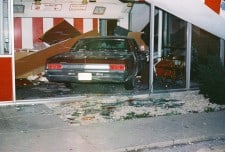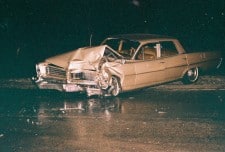 As a firefighter, certain patterns tend to emerge over time in the type of incidents we see. Depending on the time of year, certain calls seem more prevalent than others, often for reasons that defy analysis. March is the time of new growth and rebirth. Winter is, if not ending, definitely been given it’s walking papers. So we start looking forward to warmer weather, and traffic related calls suddenly begin to spike. Bear in mind that ‘traffic related’ calls can mean any number of things. Car seat inspections begin to rise, for example, as well as the usual interpretation…car accidents.
As a firefighter, certain patterns tend to emerge over time in the type of incidents we see. Depending on the time of year, certain calls seem more prevalent than others, often for reasons that defy analysis. March is the time of new growth and rebirth. Winter is, if not ending, definitely been given it’s walking papers. So we start looking forward to warmer weather, and traffic related calls suddenly begin to spike. Bear in mind that ‘traffic related’ calls can mean any number of things. Car seat inspections begin to rise, for example, as well as the usual interpretation…car accidents.
Traffic accidents are nothing new, and are, in fact, much older than many people know. The first recorded automobile fatality happened in Parsontown, Ireland way back in 1869. A unique accident for its time, the incident itself has been mirrored since in thousands of accidents a year, and as cars have evolved so have the types of accidents we’re likely to encounter with them. We have, however, a fairly standard approach to car accidents we respond to, and knowing this may make it easier for you to handle what seems to be a very out of control and emotional experience.
First and foremost, call 911 if you can. Start the process which allows us to check up on you, and take a moment to assess your health and well being. You will find, on our arrival, that our interest in your automobile is focused on making sure it is secure and not a danger to you or anyone around you. If you witness or come upon an accident, please don’t try to drive through the scene. The Police do an excellent job of traffic control, and try to not slow things up too much, but safety of first responders is paramount if we’re going to be able to help victims.
 So what are some of the things we’re going to do? First and foremost after the scene is safe we’ll check on you and any other people whom may have been involved in the accident. We’ll try and secure your car, and putting it in park, turning it off and placing the keys on the dashboard visibly may be a few of the things we’ll do. This insures the car stays put and minimizes the chance of the car becoming a danger because of something we can’t see.
So what are some of the things we’re going to do? First and foremost after the scene is safe we’ll check on you and any other people whom may have been involved in the accident. We’ll try and secure your car, and putting it in park, turning it off and placing the keys on the dashboard visibly may be a few of the things we’ll do. This insures the car stays put and minimizes the chance of the car becoming a danger because of something we can’t see.
We’ll ask you a few questions, some of which may not make sense to you, and may even seem trivial. They aren’t, every question is geared towards learning what might have happened to you when your vehicle had the incident. If we have to extricate, we’ll get to work after providing you with the most protection and safety we can. Our goal with extrication is to remove the car from you, not you from the car. It will sound a little scary, but we’ll be there to help you every step of the way.
We’ll protect you from further harm. If you have to be placed on a board or given a neck collar it will be uncomfortable, but necessary. Oftentimes the precautions we take can lead people to believe an injury is worse than it is. If you are a minor we cannot allow you to refuse a trip to the ER without a parent present. That’s a law, and it’s in your best interest.
Our job revolves around your safety and well being. We do understand this can be traumatic, and the confusion of the scene may lead you to think outside our priority box. Listen to the Police, let us help you, and all the details will get worked out for you and your family. Remember, we care about you and your family!
